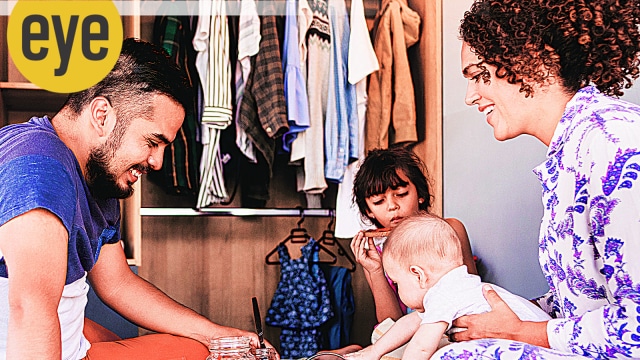Invitation to a Scruffy Way of Life
To unclench and let it be. To live an unfiltered life. To savour little joys of imperfection
 What if we could be comfortable with our dark, dusty and threadbare corners that we hide from each other? (Source: Getty Images)
What if we could be comfortable with our dark, dusty and threadbare corners that we hide from each other? (Source: Getty Images)Sona had recently moved back to Delhi from abroad and invited some friends home to reconnect and catch up. After the meal, she was left with a sense of disappointment though she could not figure out what was missing. “I had planned everything perfectly,” she said, “for friends I love and who matter so much to me.” I was very curious about what she meant by the word, “perfectly”. She sat still for some time and then with a sigh, wondered, “Maybe that is the problem, I was trying too hard to make it perfect.”
Sona explained how she had worked for days in micro-planning the meal, rearranging the furniture and hiding the shabby stuff. “I was so busy performing and perfecting that there was no time to connect,” she reflected. I wondered if she could remember times with her friends from the past that she cherished. With a tender smile on her face, she remembered how they would gather spontaneously, over “a potluck meal and have addas where the only thing that mattered was togetherness.” I asked her what was different in those gatherings and she replied, “All of us welcomed all of us.”
I was reminded of this conversation while listening to a podcast in which the writer Oliver Burkeman talked about the concept of “scruffy hospitality,” (attributed to a priest Jack King) which honours, “If we only share meals with friends when we are excellent, we aren’t truly sharing life together.”
Growing up, I lived in a socially bustling household. My parents loved to have family and friends over all the time. Unlike me, they were happily oblivious to the mess in the house. As soon as I learned that someone was visiting the house, I would go around tidying up. It was a joke that people would hide their stuff before I hid them in an obscure corner never to be found. This pattern continued into adulthood. If friends would call to say that they would be dropping in an hour’s time, rather than looking forward to a good time, I would be rushing around pummelling the cushions, burying the scruffy bits in the cupboards and hiding any evidence that humans lived in our home. This frenzied commando-worthy operation would build up until the bell rang when I would dive into the bathroom to make myself presentable. Sounds familiar? No wonder having friends over seemed more of an ordeal than something to enjoy.
We have been indoctrinated into thinking that we have to present the most “show-worthy”, “best version” of ourselves to others. Shabby, run-down homes become symbolic of our laziness and failures. This idea is exploited and commodified by our consumerist culture. We have grown up with the pictures of gorgeous homes in catalogues which we have dreamt of attaining one day. Anything less is not good enough and invites shame.
This Diwali season look around and observe how the celebration is being co-opted, packaged and marketed to us. We are made to believe that we will find the elusive worthiness and happiness if only we could become glossier. But all that it is doing is making us more miserable in the dogged pursuit of more, “Earn more, want more and spend more”. As we cram our homes, landfills and oceans, the industries continue to thrive, but the cost to the Earth is high.
I call it the burden of an infinity loop of Ps (proving, pretending, perfecting, pressurising, performing, posing, pushing, etc.). The burden multiplies much more if we bring in issues of normative judgments on people who struggle with poverty, disability, unemployment or who are not accepted due to their sexuality, gender expansiveness, neurodivergence, etc. What if we could be comfortable with our dark, dusty and threadbare corners that we hide from each other?
The interesting thing is that most of us prefer to show shiny versions of ourselves to others and yet feel very honoured when others show their scruffy parts. It’s like dropping into our friend’s home uninvited and they welcome us warmly with no attempt to hide the laundry basket lying in the corner or scrambling to change out of their pyjamas. And being invited over for a rustled-up meal which you relish over deep conversations, laughter and togetherness. If you have enjoyed that experience you would know the joy of being included and feeling at home. Why is it that we find it difficult to give others what we seek from them?
In that context, the scruffy home is a powerful metaphor for life. The shift for me has come in waves. It began when my kids (and dog) were little and their clutter was huge. As they grew up, they seemed to be oblivious to the chaos that surrounded them. “Don’t you think you should clean your room before your friends visit,” I would appeal and their inevitable response was, “We don’t care and they don’t care.” My husband did not care much, too, unless it came to his kitchen and cooking. But that is his story to tell. Then came the pandemic and a realisation that this “stuff” really does not matter in the big picture of life. We adopted the Japanese “wabi-sabi” and became comfortable in our unvarnished, imperfect homes. Then finally came our cats! They made our sofas into scratching posts, and curtains into swinging ropes and their litter trays took over the pretty corners of our home. We learned to shrug our shoulders, smile and go with the scruffy flow.
What is the philosophy of a scruffy life? To unclench and let it be. To slow down and savour good conversations and connections. To live an unfiltered life. To invite people who matter to us into our lives and homes. With grace and respect. Without any rush to hide the lived-in human bits. To invite and receive without judgment. To be comfortable with each other’s sloppiness. To not be lured by the Instagramable aesthetics. To savour little joys of imperfection. To pay attention to what matters and let go of what does not. To say no to the burden of societal expectations of what is deemed as worthy. It is not just a way of life but a response to unrealistic demands on us. An act of resistance. To be liberated. So that all of us welcome all of us.



- 01
- 02
- 03
- 04
- 05




























